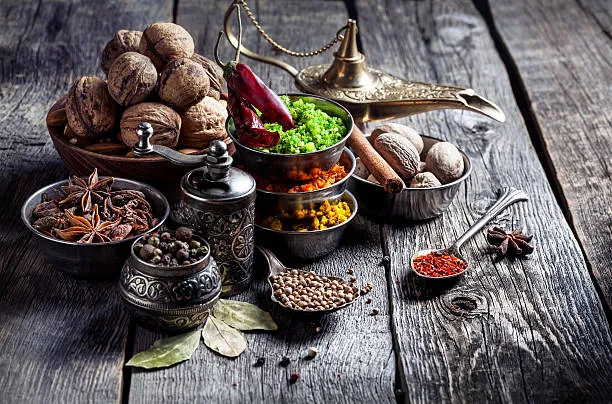
Balance Your Doshas with the Seasons: A Fresh Approach to Eating
June 29, 2025
Welcome to a world where food is not only nourishment but a path to harmony and vitality. Ayurveda, the ancient Indian system of holistic health, emphasizes the importance of balancing your body’s dosha energies in alignment with the changing seasons. By understanding how seasonal shifts impact your doshas, you can create harmony within yourself and enjoy optimal well-being.
This blog will guide you through the basics of dosha balancing, explain how to tailor your eating habits to each season, and show how these principles can inspire a healthier, more vibrant life.
What Are Doshas and Why Do They Matter?
A central concept in Ayurveda is the understanding of doshas, which are energetic forces that govern physical and mental processes in the body. There are three primary doshas:
- Vata (associated with air and space) : Governs movement, creativity, and energy. When out of balance, it may cause anxiety, dryness, and irregular digestion.
- Pitta (associated with fire and water): Governs transformation, metabolism, and intellect. Imbalances can lead to anger, inflammation, or overheating.
- Kapha (associated with earth and water): Governs stability, growth, and nourishment. Excess can cause lethargy, heaviness, and congestion.
Each of us has a unique combination of these doshas, but they are influenced by the environment, our diet, lifestyle, and the changing seasons.
How Seasons Affect Your Doshas
The seasons have distinct characteristics that can either balance or aggravate your doshas. For example:
- Winter (Vata season): Dry, cold, and windy conditions increase Vata energy, requiring warmth and grounding foods.
- Summer (Pitta season): Hot and fiery, summer may overheat your system, making cooling and hydrating foods a priority.
- Spring (Kapha season): Damp, cool, and heavy conditions heighten Kapha energy, calling for light and cleansing foods.
- Autumn (transitioning season): A mix of cooling and warming practices helps balance fluctuating energies during this time.
Each of us has a unique combination of these doshas, but they are influenced by the environment, our diet, lifestyle, and the changing seasons.
Seasonal Eating to Balance Your Doshas
Winter (Vata Season)
Dosha Impact: Cold and dry conditions aggravate Vata.
What to Eat:
- Warm and Nourishing Foods: Incorporate soups, stews, and sautéed vegetables.
- Healthy Fats: Add ghee, olive oil, or nuts to support hydration and digestion.
- Spices: Use warming spices like ginger, cinnamon, and cardamom to support digestion.
Example Meal: Lentil soup spiced with cumin and a side of roasted sweet potatoes drizzled with ghee.
Spring (Kapha Season)
Dosha Impact: The heaviness of spring amplifies Kapha energy.
What to Eat:
- Light and Cleansing Foods: Focus on steamed greens, bitter vegetables, and whole grains.
- Herbs and Spices: Try turmeric, mustard seed, and black pepper to stimulate digestion.
- Fruits: Favor astringent fruits like pomegranates and berries.
Example Meal: Quinoa salad with kale, roasted root vegetables, and a turmeric-lemon vinaigrette.
Summer (Pitta Season)
Dosha Impact: Heat exacerbates Pitta, leading to inflammation or irritability.
What to Eat:
- Cooling Foods: Eat cucumber, watermelon, and leafy greens.
- Sweet and Hydrating Options: Coconut water, aloe vera, and fennel-infused teas are excellent.
- Avoid: Spicy, oily, or overly salty foods as they may further heat the body.
Example Meal: A refreshing salad with cucumber, mint, and pomegranate, paired with a cooling coconut yogurt dressing.
Fall (Transition Season)
Dosha Impact: Vata energy starts to increase, making grounding and soothing practices essential.
What to Eat:
- Cooked Foods: Steamed or roasted vegetables with grains like brown rice help stabilize energy.
- Sweet and Hydrating Options: Coconut water, aloe vera, and fennel-infused teas are excellent.
- Sweet and Sour Tastes: Incorporate sweet fruits like figs, and sour additions like a squeeze of lime.
- Good Oils: Opt for sesame oil or sunflower oil for cooking.
Example Meal: Steamed butternut squash with quinoa, sesame oil, and a hint of nutmeg.
Pro Tips for Seasonal Dosha Balance
Medicinal leeches suck ‘impure blood’ out and inject mixtures of beneficial compounds at the same time. Their saliva contains valuable healing substances like:
- Mindful Eating: Sit down in a calm environment, free of distractions. Chew your food slowly.
- Stay Hydrated: Adjust your hydration habits based on the season. Add cooling herbs to summer drinks or enjoy warm herbal teas in winter.
- Timing Matters: Eat your heaviest meals during lunch when your digestive fire (Agni) is strongest.
- Destabilase – Clot former through the breakdown of fibrin.
- Listen to Your Body: Tailor your food choices to how you feel rather than rigidly following a plan. Ayurveda values individuality above all.
Create Balance Through Lifestyle, Too
Seasonal adaptation isn’t limited to food. Your lifestyle can also support balance:
- Winter: Enjoy restorative yoga, warm baths, and calming evening routines to counter Vata energy.
- Spring: Engage in invigorating exercise like jogging or cycling to keep Kapha energy in check.
- Timing Matters: Eat your heaviest meals during lunch when your digestive fire (Agni) is strongest.
- Summer: Prioritize relaxation techniques such as cooling pranayama (breathwork exercises) to soothe Pitta.
- Fall: Adopt grounding rituals like daily oil massages and gentle yoga sequences to ease the body’s transition.
Start Eating for Harmony Today
Seasonal, dosha-aligned eating is more than just a diet; it’s a way to connect with nature and bring balance to your life. With thoughtful adjustments to your meals and lifestyle, you can keep your doshas in harmony and thrive year-round.
If you're seeking personalized guidance, explore the resources at Shatavari Ayurveda, where Ayurveda experts share tips and recipes to fine-tune your eating habits for health and longevity.
Make a commitment to seasonal balance today and experience the positive transformation it brings to your energy, mood, and overall health.



